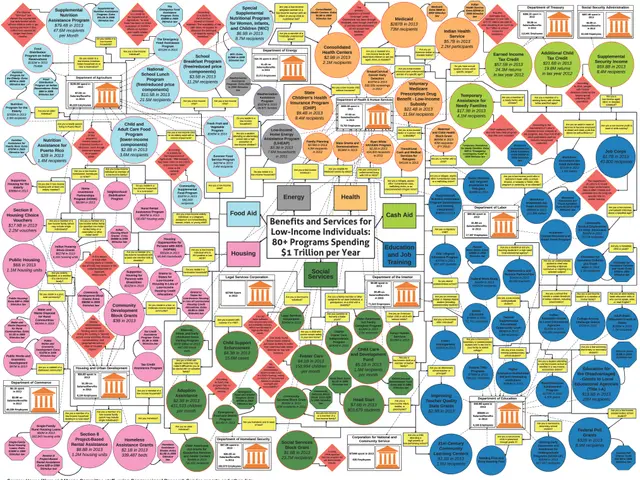Increasing Property Market Resale worth: 2025 Financial Analysis Guide for Home Renovations
In the world of real estate, home renovations can significantly impact a property's value. However, it's essential to understand that the process doesn't always mirror the glamorous makeovers seen on renovation TV shows.
Firstly, buyers are less likely to pay extra for personal taste in finishes. Instead, they focus on functional improvements that save money or add convenience. For instance, minor kitchen remodels that focus on surfaces rather than layout changes can return 85-96% of the cost, making them a wise investment.
Energy efficiency is another critical factor that buyers consider. Energy Star ratings matter to those concerned about operating costs, and renovations that improve energy efficiency can bring positive financial returns. Renovations that qualify for serial renovation ("serielle Sanierung") with KfW/BEG subsidies can even lead to up to 45% repayment subsidies, including a 15% base bonus and additional combined bonuses. Moreover, these renovations can result in up to 20% cost savings through efficiency and shorter construction times.
Outdoor living areas have become increasingly important, especially after 2020, with deck or patio additions creating desirable outdoor living spaces that buyers want. Similarly, window replacement with energy-efficient models can return 65-70% of the cost while reducing utility bills.
Multi-functional spaces matter more than formal rooms that nobody uses. Bathroom updates, which recover 67-74% of the cost, are worthwhile if they're outdated. Basement finishing adds heated square footage that bumps home value into higher price brackets.
Curb appeal is crucial in creating a good first impression. A well-maintained house that looks inviting from the street sells faster and for more money than one that looks neglected. Front door replacement, especially with steel doors, can return 188% of the cost.
Smart home features appeal to tech-savvy buyers, but they must be simple and useful. Smart thermostats, efficient appliances, and heat pump condensers that reduce monthly bills are more attractive to cost-conscious buyers than luxury finishes. However, it's important to note that energy efficiency now drives buying decisions because utility costs keep rising.
While square footage drives home values more than any single factor, location and comparable sales set your price ceiling. You can't improve your way out of a bad neighborhood or add excessive value to a low-priced neighborhood.
Lastly, it's essential to remember that the home improvement industry makes money selling expensive materials and labor, not ensuring homeowners get their money back. Successful home improvements solve problems or add function, while everything else is just decoration. Garage door replacement, for example, delivers a 194% ROI because it's visible from the street and signals that the property is maintained.
In conclusion, when planning a home renovation, focus on functional improvements that add value, prioritise energy efficiency, and remember that a well-maintained home with good curb appeal will attract potential buyers and maximise your return on investment.
Read also:
- Peptide YY (PYY): Exploring its Role in Appetite Suppression, Intestinal Health, and Cognitive Links
- Toddler Health: Rotavirus Signs, Origins, and Potential Complications
- Digestive issues and heart discomfort: Root causes and associated health conditions
- House Infernos: Deadly Hazards Surpassing the Flames








